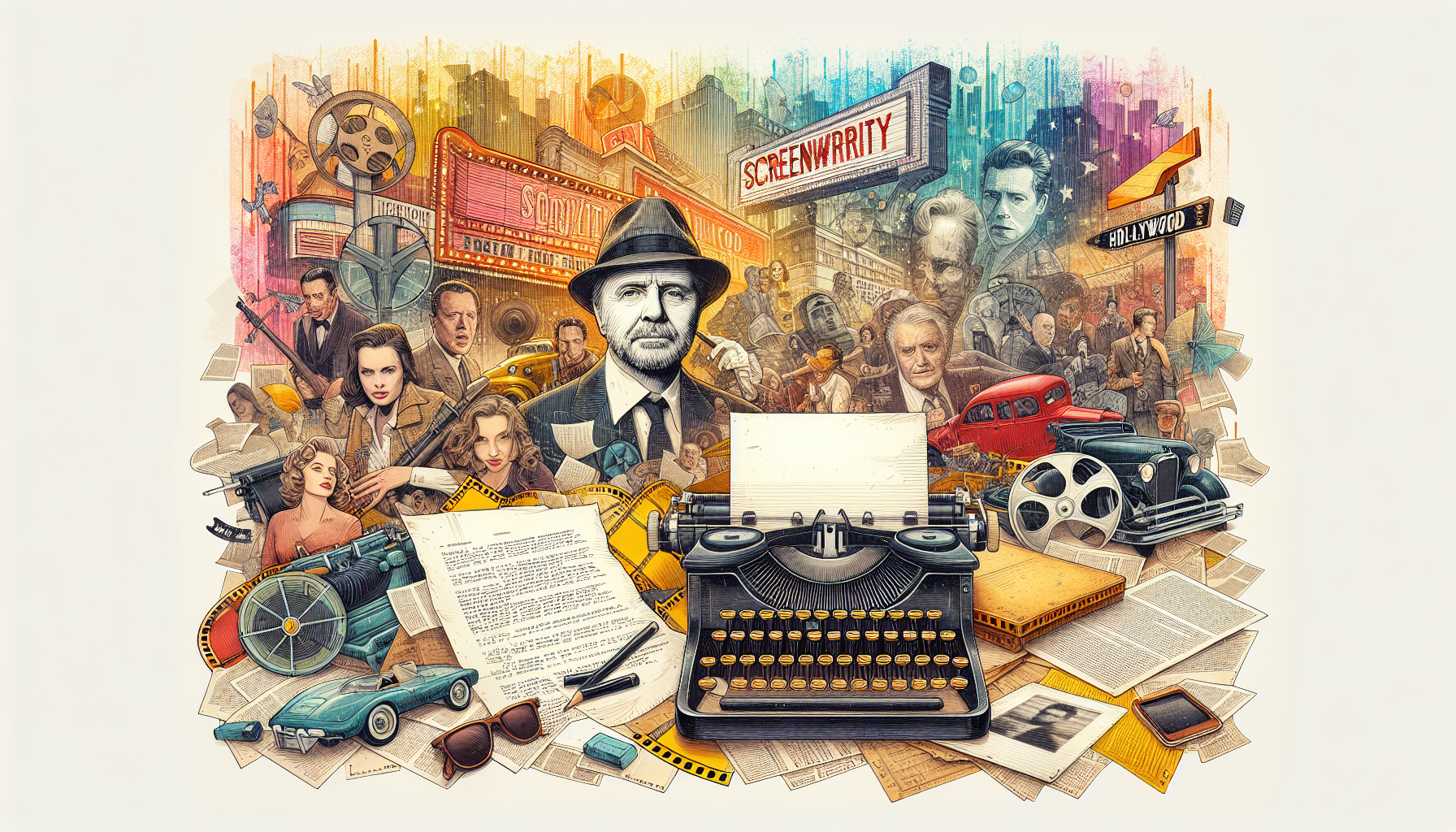
A Dose of Towne for Your Scripting Woes
Let’s dial the clock back and talk about a Hollywood legend who typed his way into cinematic history – Robert Towne. Famous for penning the script of “Chinatown,” which, frankly, screenwriters worship as the screenplay bible, Towne crafted dialogue and scenes that are as iconic as the Hollywood sign itself. His masterful narrative constructions and sharp wit not only redefined genre standards but left an indelible mark on the film industry.
Who Wears the Crown? Chinatown!
When discussing the jewels in Towne’s crown, one cannot overlook Chinatown (1974), the ne plus ultra of neo-noir mystery thrillers. Directed by Roman Polanski, this film is a delicious cocktail of intrigue, deception, and moral ambiguity, shaken not stirred, with a twist of iconic noir elements. Towne’s screenplay for “Chinatown” not only won him an Academy Award but also taught generations of writers the art of narrative subtlety and structural perfection. Picture Jack Nicholson with a bandaged nose, and you’ll picture Towne’s crafty handiwork.
The Juicy Bits: Devil’s in the Details
One of Towne’s renowned strengths was his ability to evoke a strong sense of place. He painted Los Angeles not merely as a backdrop but as a living, breathing character. Through sharp dialogue and intricate plotting, Towne’s LA is always a lady of mystery, shrouded in smog and secrets waiting to be revealed (no spelunking equipment needed, just a keen eye and a sharper wit). This environmental mastery made his screenplays come alive, captivating audiences and critics alike.
Other Shining Stars in Towne’s Hollywood Walk
Apart from “Chinatown,” Towne’s portfolio sparkles with a variety of gems. Think about “Shampoo” (1975), where Towne, sprinkling his screenwriting magic, gives us a satirical look at the sexual mores and politics of the 1960s. Directed by Hal Ashby and starring Warren Beatty, this film is a tart lemonade of social commentary, spiked with humor and heartache. Or delve into “Tequila Sunrise” (1988), where cocktails and crime blend smoother than your best margarita, proving Towne’s versatility and his knack for taut thrillers.
The Art of Collaboration: Mingling with Movie Moguls
Towne wasn’t just a lone wolf; oh no, he preferred running with the pack. His collaborations read like a who’s who of Hollywood royalty. Let’s talk a bit more about Jack Nicholson. This dynamic duo not only gave us “Chinatown” but also “The Two Jakes” and “The Last Detail”, illustrating how mutual respect and creative synergy can elevate a project. Beyond Nicholson, Towne’s screenwriting prowess was enlisted by big names like Tom Cruise for “Mission: Impossible” and “Days of Thunder,” showcasing his adaptability to changing Hollywood landscapes and audience expectations.
The Towne Effect: A Legacy Inked in Hollywood Lore
What makes Robert Towne a staple figure in screenwriting conversations isn’t just his awards cabinet (enviable as it is), but his fearless narrative strategies and dialogues that can slice through a scene sharper than a samurai sword. Towne’s work is stitched into the fabric of Hollywood, a testament to his enduring influence on narrative craft, character development, and dialogue precision.
Whether it’s his meticulously crafted noir narratives or his poignant explorations of human relationships, Towne’s scripts teach, tantalize, and occasionally, traumatize (in the most entertaining way possible). So, the next time you’re experiencing writer’s block or cinematic ennui, just ask yourself: What would Towne write? Spoiler: It’s bound to be brilliant.






